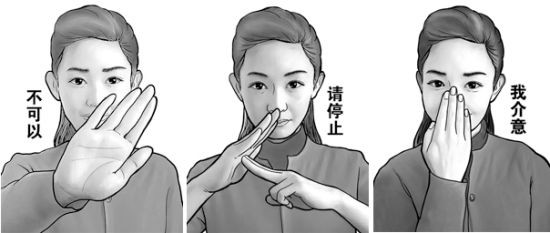Two months before the launch of its anti-smoking campaign, Beijing Association on Tobacco Control encouraged the public to vote for its anti-smoking gestures initiative.
The public can vote for their desired gestures from the three posters that show a woman executing particular gestures.
"No," "Please Stop" and "I Do Mind" are the words that correspond to the hand gestures shown in the posters.
The people may also open a public account on WeChat where they can learn information about smoking, the rules to be followed, as well as how to report illegal smokers.
On June 1, Beijing's "strictest" anti-smoking campaign will be implemented where public smokers are bound under the supervision of law enforcement officials, Liu Zejun, director of the Beijing Patriotic Health Campaign Committee, said.
The bill, which was passed in Nov. 2014 by the Beijing municipal legislature, states that smoking will be banned in all indoor public places, workplaces, and on public transportation areas "with no loopholes and no exemptions."
Jing Yidan and Lang Yongchun, anchors of China Central Television (CCTV) are the models of the anti-smoking campaign.
But as the implementation of the campaign is approaching, many are still doubting its efficiency as previous smoking campaigns were not thoroughly followed by the public. Many smokers were still seen huffing and puffing in public areas.
According to the World Health Organization, China has 300 million estimated smokers, one-third of the world's total number of smokers.
One million deaths in the country are caused by tobacco smoking and about 100,000 people die as a result of exposure to second-hand smoke each year.



























